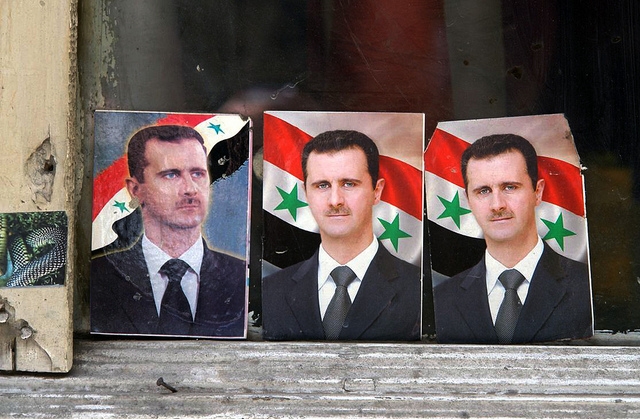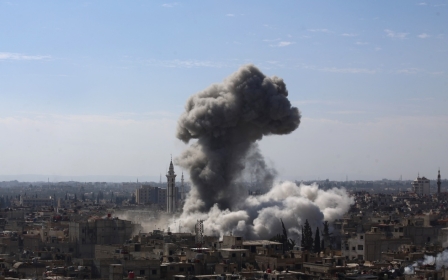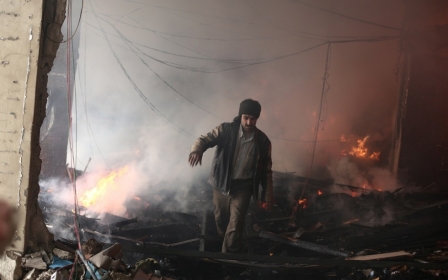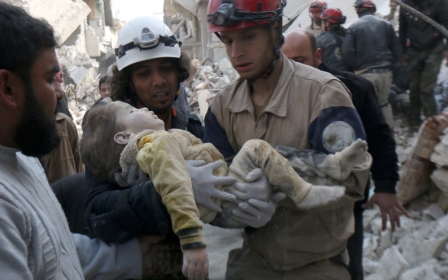UN envoy: Assad is 'part of the solution'

Syrian President Bashar al-Assad will have to be included in a deal to end the fighting in Syria, the United Nations envoy to Syria Staffan de Mistura said Friday, in the first such acknowledgement by the UN.
"President Assad is part of the solution," de Mistura told a joint press conference with Austrian Foreign Minister Sebastian Kurz in Vienna.
"I will continue to have very important discussions with him," he added, noting that "the only solution is a political solution".
This was the first time a UN envoy to Syria has explicitly named Assad as part of a peaceful solution.
De Mistura, who was in Damascus this week to meet with Assad, is due to deliver a report on his mission to the UN Security Council on 17 February.
The rise of groups like Islamic State, which now controls vast swathes of Syria, has been linked to the policy reversal.
If no solution to the conflict is found, "the only one who takes advantage of it is [the Islamic State group] Daesh," de Mistura said.
The group is a "monster waiting for this conflict to take place in order to be able to take advantage," he said.
Kurz agreed that "in the fight against IS it can be necessary to fight on the same side" but stressed that Assad could “never be a friend or even a partner".
Previous rounds of talks, held in Geneva and later in Moscow, have all failed to reach consensus, and opposition groups continue to insist that there cannot be peace until Assad steps down.
The joint press conference is the latest sign that Western attitudes toward Assad might be shifting.
Analysts have speculated about the possibility of such a policy reversal for months, despite continued US insistence that it will not happen.
According to Lauren Williams, a journalist formerly based in Syria writing for the Australia-based Lowry Institute for International Policy, recent moves indicate a thawing of relations including a softening in US rhetoric calling for Assad to go.
There is also rumoured to be a flutter of behind-the-scenes diplomatic activity by some EU governments, which are relaying messages to Damascus through the Czech embassy there.
Alternative approaches to peace, such as local freezes or truces, are also increasingly being promoted as possible alternatives to end the conflict. In a poll on Thursday, 53 percent of residents in opposition-held areas of Syria's second city of Aleppo - which has seen some of the country's worst violence since July 2012 - said they favoured de Mistura's October proposal of a "freeze" in fighting.
A vast majority of respondents, however, said they were sceptical that such a truce would hold.
The US launched an international coalition to fight IS in August 2014, when it began attacking IS targets in Iraq. In September, the coalition expanded its operations into Syria.
In a BBC interview earlier this week, Assad said that the US-led coalition was providing only very basic information to his forces.
"There's, let's say, information, but not dialogue," Assad said, while lamenting the fact that his forces were not allowed to play a larger part in the coalition.
The Syrian conflict began as peaceful protests in March 2011, before descending into war that has since killed more than 210,000 people.
The last two weeks have seen a fresh round of fighting break out throughout much of Syria, with Assad’s forces launching a major push in Southern Syria, and also heavily shelling the Eastern Ghouta region just outside the capital Damascus. The latest assault on Eastern Ghouta, and its administrative capital Douma, began after a rebel group fired rockets into Damascus, killing 10.
Although in his BBC interview Assad denied allegations of indiscriminate bombing and the use of crude but deadly "barrel bombs," human rights groups have widely documented their use.
Middle East Eye propose une couverture et une analyse indépendantes et incomparables du Moyen-Orient, de l’Afrique du Nord et d’autres régions du monde. Pour en savoir plus sur la reprise de ce contenu et les frais qui s’appliquent, veuillez remplir ce formulaire [en anglais]. Pour en savoir plus sur MEE, cliquez ici [en anglais].




